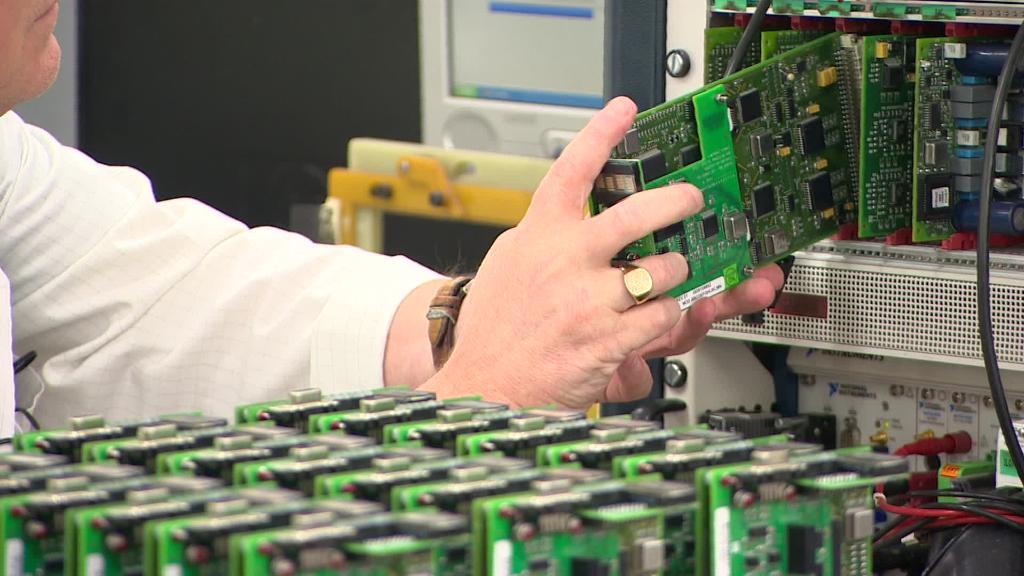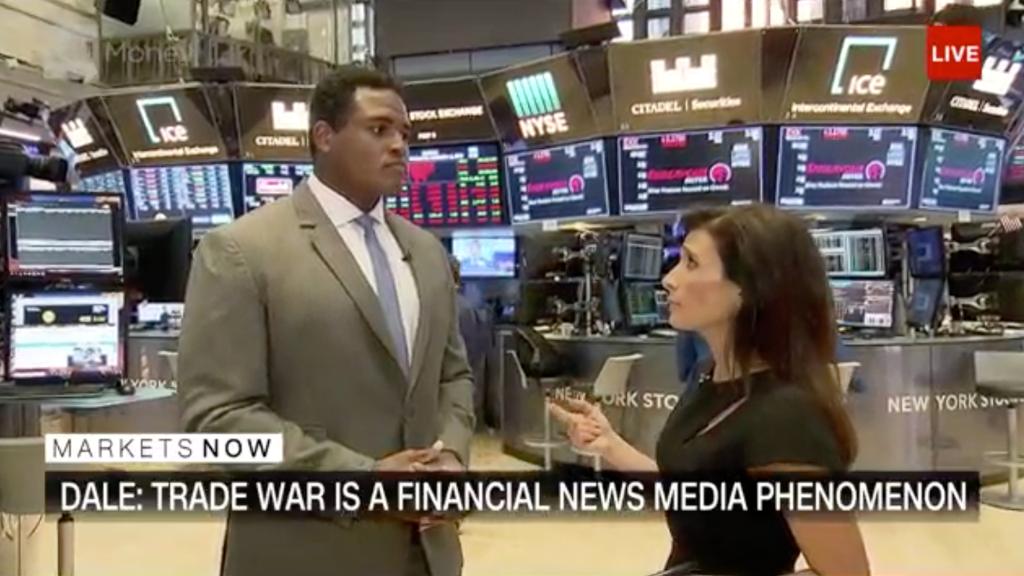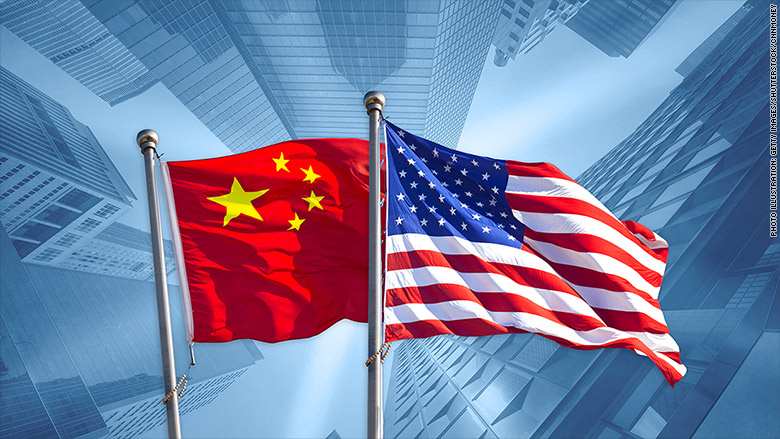
Business leaders and officials in China say that Beijing is ready to dig in for a war of attrition with the United States on trade.
The Trump administration launched its biggest barrage of tariffs yet just as top executives and policymakers were gathering for the start of a World Economic Forum event in the northern Chinese city of Tianjin on Tuesday. China said later it would retaliate with more tariffs of its own.
The trade war dominated discussions at the "summer Davos," as the event is known, and few participants predicted a swift resolution to the conflict.
"China is growing concerned that the US motivation is now trying to keep China down and contain it," said Timothy Stratford, a managing partner at law firm Covington & Burling in Beijing. "I expect that we're going to have a deadlock for some time."
The US government wants China to change practices that it says disadvantage American businesses, accusing Beijing of overseeing the theft of US intellectual property and boosting Chinese companies through aggressive industrial policies. The Chinese government dismisses the criticism as groundless, even though American and European firms operating in China frequently complain about the issues.
'This is a test for us'
Chinese government officials speaking in Tianjin insisted that the country can weather the tariff battle even though it has shaken the country's financial markets.
"The trade frictions don't have a huge direct impact on China's economy, but they may impact people's expectations," said Liu Shijin, a Chinese government adviser and member of the monetary policy committee at the People's Bank of China.
A slump in Chinese stocks and the yuan showed investors had "overreacted" to trade fears, he added.
"This is a test for us and we should stick to our direction and never stop," Liu said of the trade war.

Fang Xinghai, vice chairman of China's securities regulator, said that the new US tariffs wouldn't make Beijing back down. He said he hoped the two governments would soon talk again and strike a deal.
One of China's most prominent entrepreneurs is doubtful that will happen anytime soon.
The trade war is "going to last long, it's going to be a mess," Jack Ma, the founder and executive chairman of top Chinese e-commerce company Alibaba (BABA), said Tuesday at a separate event in the eastern city of Hangzhou. He predicted the conflict could drag on for as long as 20 years.
US companies operating in China say the waves of tariffs are already hurting their business. Casualties also include American chipmaker Qualcomm (QCOM), whose $44 billion deal to buy Dutch rival NXP Semiconductors (NXPI) was blocked by Chinese regulators in July.
Other companies could get caught in the crossfire. JPMorgan Chase (JPM) wants to take advantage of China's efforts to open up its financial industry and recently applied to launch a brokerage in the country.
Asked if he was worried Beijing could withhold approval for the venture because of the trade war, JPMorgan China CEO Mark Leung said in Tianjin that it's "not within our control."
He added that the bank is "working constructively" with regulators.

US economy could overheat
While China appears to be suffering more pain right now, it may not be in the US government's interests to leave tariffs in place for too long.
"We've seen a heating up of the US economy," said Helen Zhu, head of China equities at investment manager Blackrock. "If tariffs were to go to 25% later this year on $200 billion of imports, that would work into inflationary pressure and damage the US consumer."
"There's an increasing incentive for both sides to work out something in the coming months," she said.
If they don't, the fallout will be felt around the world.
"Every time we get into a trade war, it doesn't end up well," said Carlos Moedas, the European Union's commissioner for research, science and innovation.
"Each time we've done protectionism, people get worse off," he added, referring to the global trade slump in the 1930s. "Economically, politicians seem not to have learned their lessons."
-- Jethro Mullen contributed to this report.


